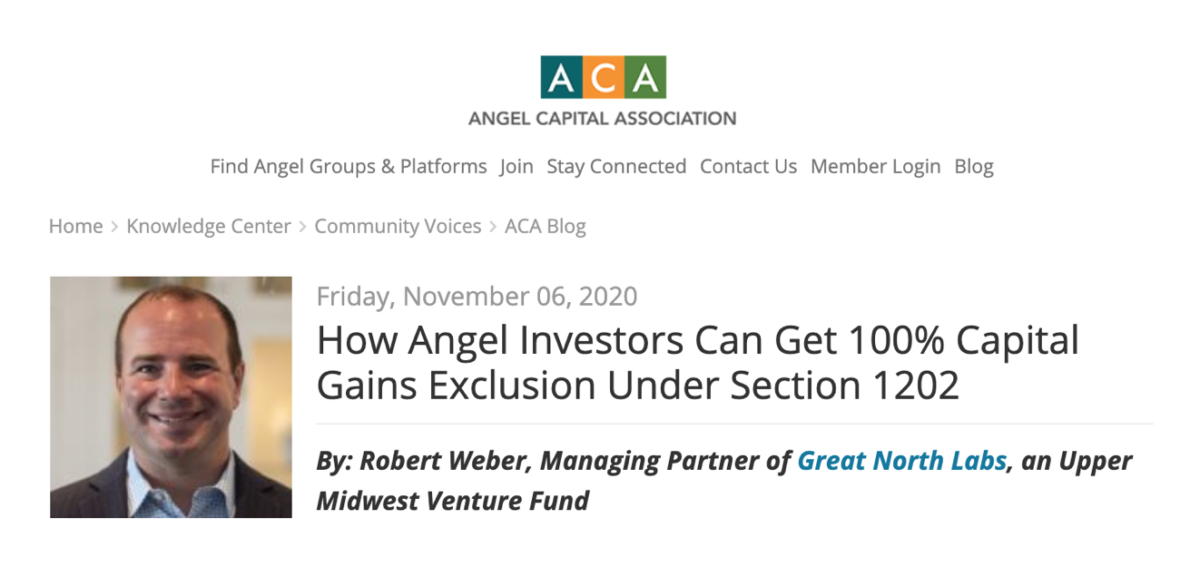Startup Investors Can Get 100% Tax Exclusion for Gains Under Section 1202

Section 1202, or “The Small Business Stock Gains Exclusion”, provides a 100% tax exclusion for Qualified Small Business Stock. If you invest in early-stage companies and aren’t familiar with Section 1202, check in with your tax advisor. Being able to exclude 100% of the gain on a stock sale for cash is virtually unmatched anywhere in the tax code.
Section 1202 was originally part of the Revenue Reconciliation Act of 1993, which aimed to provide relief for investors risking their funds in new ventures and small businesses. It now allows for 100% exclusion of the gains on Qualified Small Business Stock (QSBS), capped at the greater of $10M or 10x the investor’s basis.
What Investments Qualify?
Early-stage startup investments can qualify for the exclusion if they:
- are held for five years
- were made after Sept 28th, 2010
- are in a C-Corporation
“Most early-stage tech companies are considered qualified businesses under Section 1202,” according to CliftonLarsonAllen’s Patrick Smith, “but several types of businesses are not.”
According to Smith, excluded business types include:
- Professional services in health, law, engineering, architecture, accounting, actuarial science, performing arts, consulting, athletics, financial services, or brokerage services
- Banking, insurance, financing, leasing, investing, or similar businesses
- Farming, mining, or natural resources extraction
- Hospitality (hotels, motels, restaurants, or similar businesses)
What Is Qualified Small Business Stock (QSBS)?
Section 1202 (PDF) defines “QSBS”:
It is stock in a domestic C-Corporation issued after the date of enactment of the Revenue Reconciliation Act of 1993 (August 10, 1993). It must be acquired by the individual taxpayer (or a pass-through entity, but not a corporation) at the original date of issue (not in a secondary offering) in exchange for money, property (excluding stock), or as compensation for services.
The business must:
- have assets <$50 million at the time of the equity issuance and immediately thereafter (including cash received from the issuance)
- be an active business for the duration of the investment
Utilizing the Exclusion
When making investments, investors may want to consider investment groups or funds that have a process to take advantage of the 1202 exclusion.
“QSBS is a very powerful tax benefit that incentivizes private investment into startups,” said Mike Schulte, senior analyst at Great North Labs, “However, there are potential mishaps in structuring and documenting a transaction that can inadvertently ruin compliance. Convertible instruments, entity selection/conversion, and financial reporting are just some of the issues to understand and watch out for. It is important for issuers, investors, and each of their service providers to cooperate to ensure 1202 compliance.”
—————————————————————————————————
NOTE: This article is not intended to provide tax advice. Consult your tax accountant or tax attorney.
This post is a distillation of a longer post I published in the Angel Capital Association’s “Angel Insights Blog” here.
